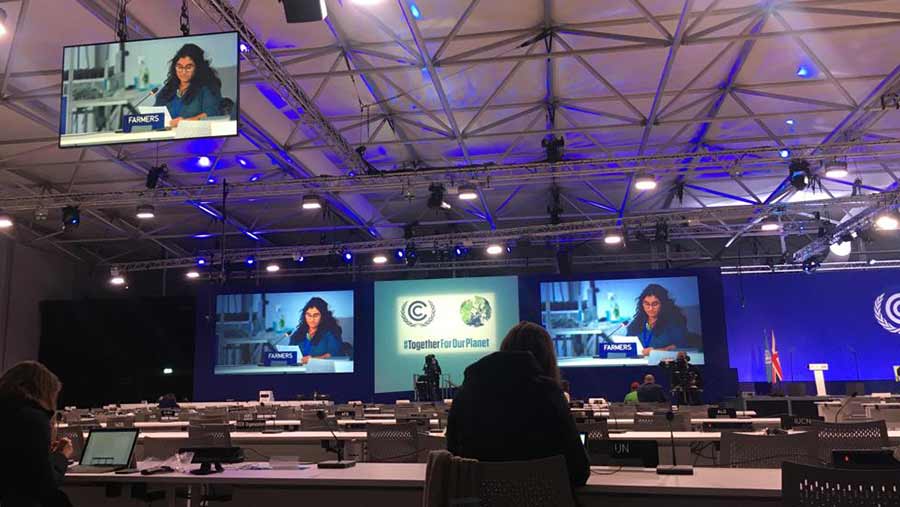Agroecology can help solve climate crisis, says farm union
 Jyoti Fernandes addresses the opening plenary session at COP26 © Landworkers' Alliance
Jyoti Fernandes addresses the opening plenary session at COP26 © Landworkers' Alliance The Landworkers’ Alliance has said agroecology and sustainable forestry will help mitigate climate change and are solutions to the crisis that must not be ignored.
Speaking before the climate change summit in Glasgow, the union’s head of policy, Jyoti Fernandes, said agriculture had historically been treated as an afterthought in negotiations, but regenerative farm systems could play a crucial role in limiting global warming.
See also: British farmers step up to climate challenge ahead of COP26
“We’re mobilising at COP26 to show that alternatives to the destructive, polluting and high-emission dominant farming models do exist – and to promote agroecological farming and sustainable forestry as real solutions to the climate crisis,” Mrs Fernandes said.
The Dorset farmer travelled to Glasgow to speak on behalf of farmers at the summit.
In a separate statement at the opening plenary on Sunday evening (31 October), Mrs Fernandes said: “We want to see the Paris Agreement implemented in full to move us forward towards a better future for the hundreds of millions of farmers across the world who are on the front line of this global climate emergency, and for us all because we depend on the food they produce.
“We want to see ambitious pledges to cut national carbon emissions that deliver on famers’ needs and expectations in a just transition. Only 15% of climate finance has been allocated to agriculture. This imbalance must be addressed.”
‘Incorporate trees’
The Landworkers’ Alliance said it was critical to reduce emissions at their source, adopt a land-sharing approach to land use, incorporate trees into working landscapes and recognise the importance of local food systems and short supply chains.
Roz Corbett, the union’s COP26 co-ordinator, said: “Being an agroecological farmer can be one of the most rewarding jobs – to produce good quality food for local communities, work with nature, and know that you’re doing something really tangible to solve the climate crisis.
“Our members are creating socially just solutions. But they face constant pressure from a food system that is set up to favour supermarkets and agribusinesses, who hold a great deal of the responsibility for the climate crisis.”
